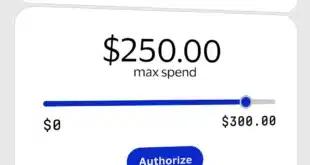Small businesses claim they have legitimate concerns that their larger counterparts will be the beneficiaries of lower card acceptance costs should the Credit Card Competition Act become law, argues the Small Business Payments Alliance, a trade organization recently formed by the Electronic Payments Coalition.
Among the concerns about how the CCCA would impact small businesses is that processors would partner with networks that lack the infrastructure and security to properly handle credit card transactions or offer higher cost networks, such as American Express, as an alternative to routing transactions over the Visa and Mastercard networks.
Offering a higher cost network alternative would not help small businesses lower their card acceptance costs, which is what the sponsors of the legislation and its proponents claim the bill is intended to do. The CCCA says if Visa Inc. is one of the network choices offered by issuers to merchants, the other choice can’t be Mastercard Inc., and vice versa.

“Offering American Express as an alternative to Visa and Mastercard doesn’t lower my card acceptance costs, because it costs me more to accept American Express,” says Ken Katz, co-owner of Buenos Dias Café and La Bodega in Atlanta and an SBPA member. “I also have concerns the CCCA will open the door for smaller processors that lack the infrastructure and security to process credit card transactions.”
Another concern raised by Katz is that large businesses with high credit card volume will leverage the CCCA network choice requirement to negotiate deals with processors that lower their cost of acceptance and that processors will then pass along higher acceptance costs to small businesses to make up the difference.
“We’re worried about how the CCCA will impact our business,” says Katz. “Most small businesses aren’t aware of the CCCA and when [they] do become aware of it, they have concerns.”
The SBPA was formed to give small businesses opposed to the CCCA a voice in preventing the legislation from being passed. “We hear from a lot of small businesses that say the CCCA is not going to help their business when it comes to card acceptance costs,” says SBPA spokesperson Peter Kaufman. “Their stance is if the system is not broken, why fix it.”
The SBPA includes among its members cycling studios, bookstores, landscapers, and apartment management companies.
The SBPA’s stance on the CCCA runs counter to many merchant trade groups such as the Merchant Payments Coalition and the National Retail Federation. Kaufman argues that such organizations are pushing a narrative that does not reflect the position of the entire business and merchant community. Instead, they are pushing a narrative favored by their largest members, which the SBPA claims to benefit the most from passage of the CCCA. “The system works as it is,” Kaufman says.
Claims that only large businesses with high credit card volume would benefit from the CCCA are false, counters Doug Kantor, an executive committee member for the Merchant Payments Coalition and general counsel for the National Association of Convenience Stores. To support his claim, Kantor points to a recent survey by the National Federation of Independent Business, which represents small as well as large businesses, in which 94% of respondents say they prefer to have a network choice when it comes to routing card transactions.
“Sure, 6% have doubts, but there will always be a group that disagrees, you won’t get 100% of merchants in agreement on this,” Kantor says. “[Network] competition will lower card prices and we have seen it in other countries, even in countries where American Express has a presence.”
Kantor adds that small businesses pay more in card acceptance fees than their larger counterparts do now and that CCCA can reduce card acceptance costs for small businesses. “Small businesses pay double what larger businesses do when it comes to card acceptance,” Kantor says.
Kantor also argues that the SBPA is merely a mouthpiece for the EPC, which represents card issuers and has been vocal in its opposition to the CCCA. “The SBPA is a sham organization put together and supported by the card industry.”
Prospects for whether the CCCA will come to a vote by year’s end as proponents had hoped are murky as Congress wrestles with funding the government to avoid a shut down. “Once that issue is addressed, then we can get a clearer picture of the voting calendar,” Kantor says.
The SBPA’s Kaufman counters that the prospects for a vote on the CCCA by year’s end are dim due to lack of support.




